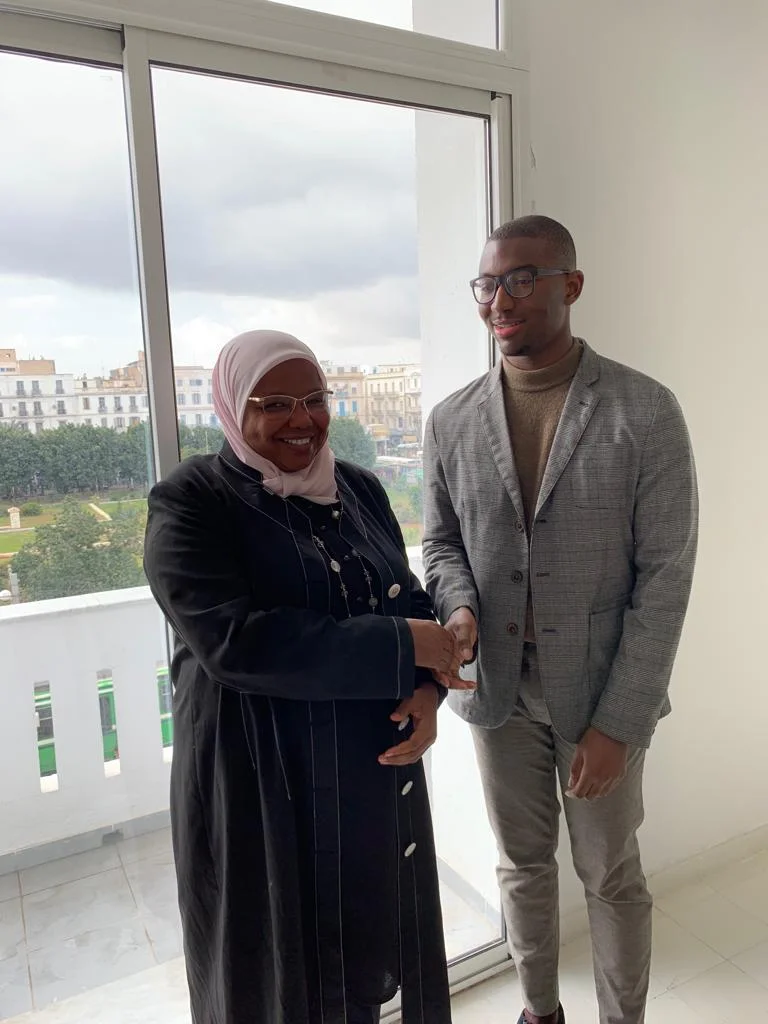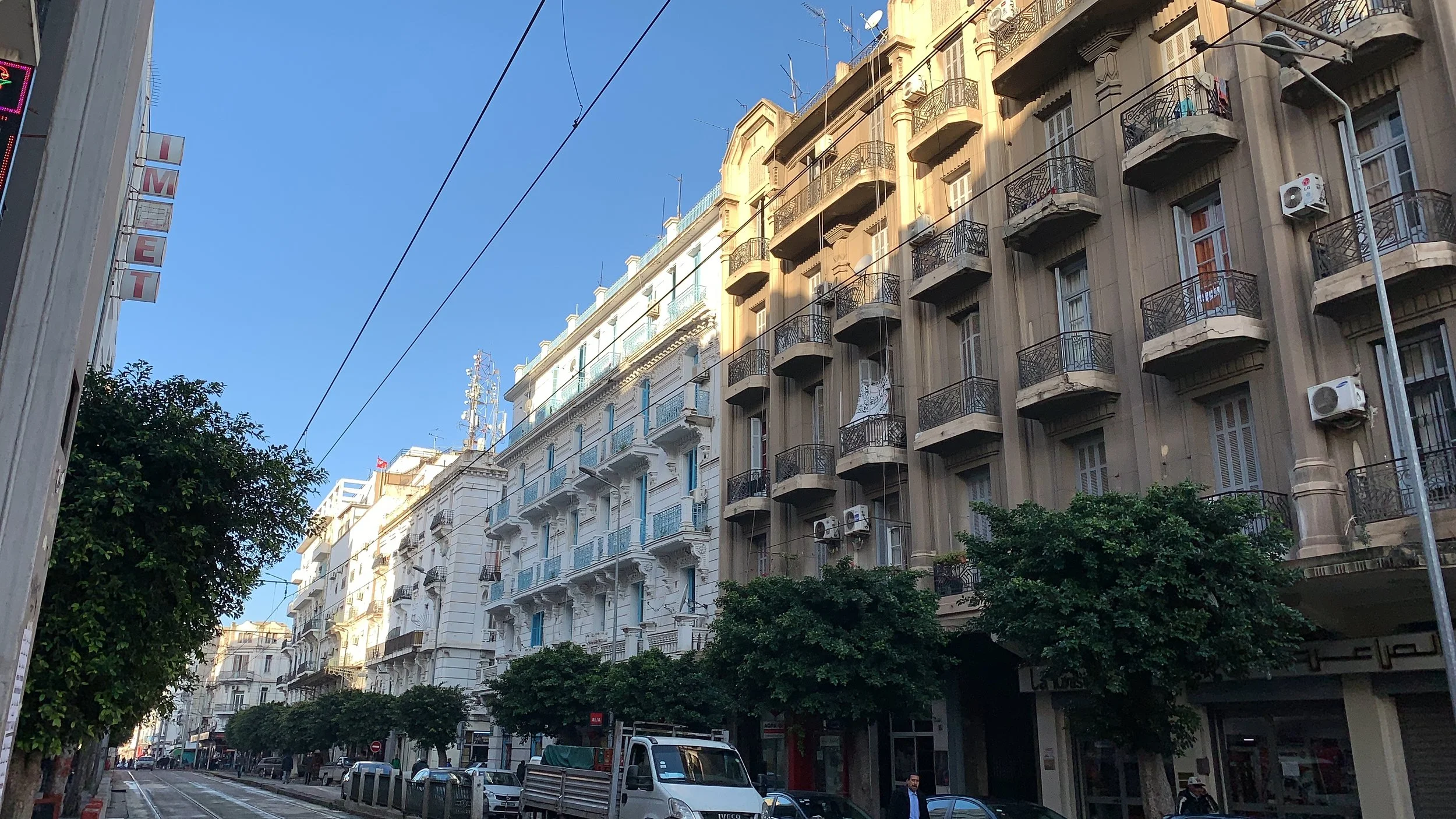When Dalenda Largeuche, women's rights activist, academic and director of Crediff, a “think and do tank” that works with the ministry of women began her presentation one of the first things that she said was that we have to think about women’s rights in Tunisia as a continuous process. This simple statement set the tone for thinking throughout the day.
There is a process to everything. Not everything is going to happen at the drop of a dime. Patience must take precedence. On the other hand, should one be satisfied in the concept of evolution? On the way back, a couple of the students made remarks about how they imagined the Global Center in Tunis would be. Some even felt that Youseff should have had assistants to answer his phone and that cleaning the table was beneath him. I quickly interjected and stated that showing someone kindness and being hospitable has no degree tied to it. There is a continuous process to building a global center in Tunis. What we have witnessed today is that sometimes it takes one person to the voice for so many people, in the case of Parliamentarian Jamila Debech Ksiski. Sometimes it takes one person to write a book that advances the contextualization of women in Islam, Taal Hadid, author of “Our Women in Sharia and Society.” Or maybe it takes one person to treat Kraft Global Fellows kindly in a beautiful foreign country like Tunisia. Often times, we bring these Western lenses into culturally sensitive situations and we do not have the bandwidth to tap into the frequency of someone’s social plight.
The process is continuous. Dynamic. Not static. Largueche walked us through historical events, highlighting that the legal framework proceeded the social change. Largueche commented that there is still a need for the implementation of laws that support the actual follow through of these laws. I became quite concerned about how these laws were effecting the daily lives of women who did not have access to the socioeconomic benefits of women in the elite class. A theme that resonated within her talk was that the legal frameworks that were created had to meet the social needs and also the economic needs of the Tunisia. For instance, Largueche brought up the law related to inheritance that was well-received by women and men in Tunisia. Inheritance often skipped the girls in the family and went to the closest male relatives. However, this law was changed because this lowered the economic power of women who needed to be able to support their families following the death of the patriarch of the family.
I had strong mixed feelings about the relationship to capitalism and social change, but these are the realities of the world that we live in. In fact, all of the talks today covered this theme of dynamic change happening at the meeting point between societal change and economic advancement. When I listened to Parliamentarian Ksiksi speak, I was shaken to my core by the amount of work that she had to do to not only incite change within the society, but also, she talked about the proof of burden that she is also erecting to prove the economic benefit of equality and equity for all races represented in Tunisia. Ksiksi spoke of the 3 incidents that occurred to raise the attention of Tunisians who were oblivious to racism (and I use this term very loosely) and those members of Parliament. Ksiksi had to face extreme denial of her cause for justice by her colleagues, some of which told her that she is trying to create division and finding problems where there are none. On the economic side, Ksiksi spoke a familiar tune about the criticism that she has received related to the economic advancement of migrant population that originate from Sub-Saharan Africa. Critics say that these migrants are taking away jobs from Tunisians. However, Ksiski notes that they are doing the jobs that Tunisians simply do not want to do. Given the current political climate in the United States for undocumented immigrants all of the country and those who are kept from entering, the words that Ksiksi spoke sounded quite familiar to me.
Another instance, during the talk led by Lorena Lando, Chef de Mission of the Organization Internationale pour le migrations (OIM), in her introduction slide she talked about the varied partners in ministry that she must collaborate with to make the change necessary to change the political climate for migrants in Tunisia. In the same hand, she also spoke proudly of the positive response that she receives daily on the social media pages of OIM regarding activities that support the migrant population. She also spoke proudly of the Tunisian community rallying around the cause of the innocent young man from the Ivory Coast who was stabbed 21 times because of his cellphone. I stayed behind to speak with Paola of OIM to talk about the existing relationship between society and After speaking with Paola, she said that a study is going to be conducted in the coming months to profile the cost and benefit of accepting the migrant population in Tunisia. She remarked that it is not just limited to the economic benefit of the migrant population, there are health benefits to including the migrant population into health assessments because they often contribute significantly to health crisis and epidemics. Speaking with Paola confirmed by thought ignoring someone’s presence and labeling them as illegal does a great danger to your own personal existence and not just your perceived economic advancement. Also, it is important that we must accept people because they are simply human. Nothing more and nothing less. No profit. No loss. Just acceptance.




